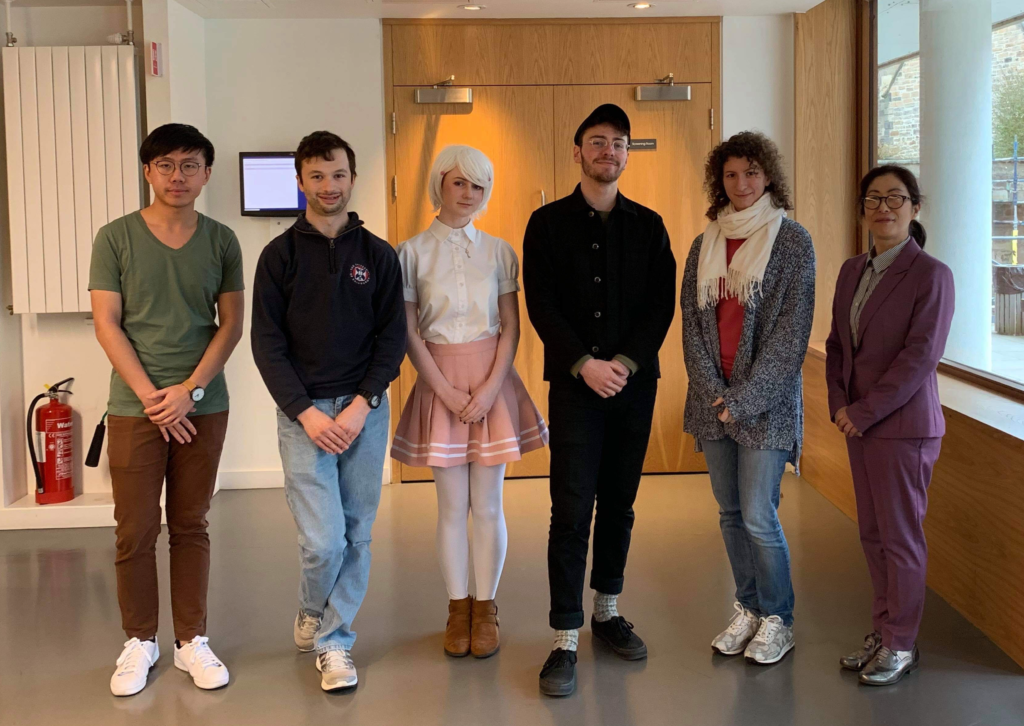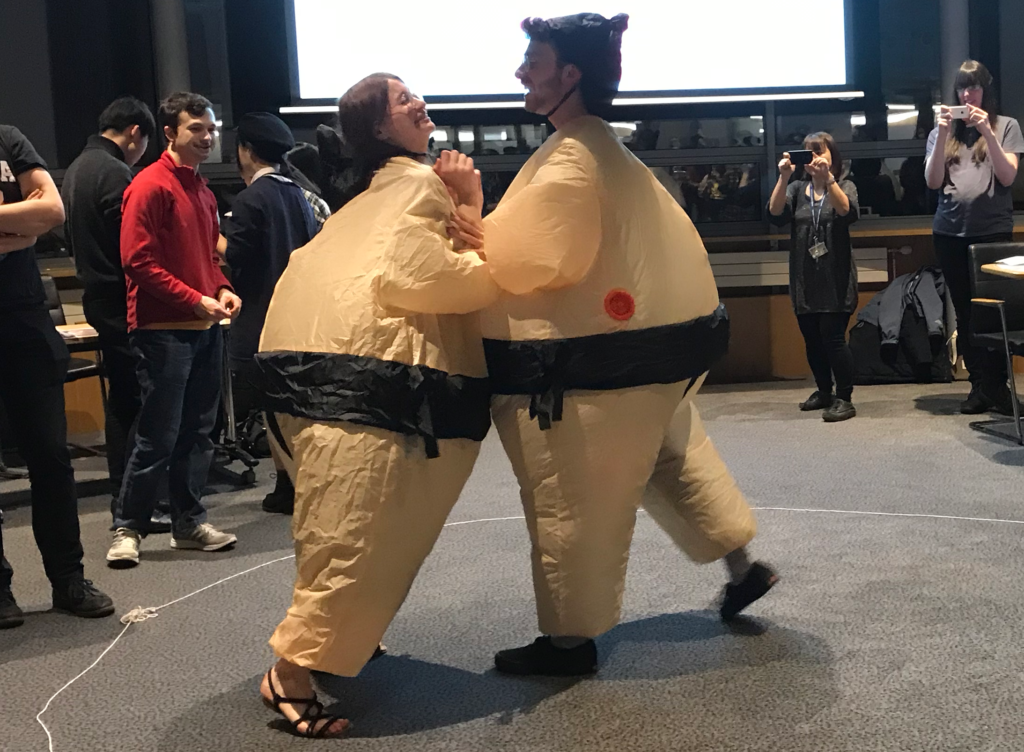
In this post, Fumiko Naruni-Munro, Japanese Language Programme Director, describes the Japanese Studies cultural event, Gakuen-sai, meaning “campus festival” in Japanese, which aims to provide students with an opportunity to develop their understanding of Japanese culture outside of the curriculum. It is organised by Japanese Studies Peer Support (JSPS), and it gives those involved a deeper understanding of Japanese school festival culture….
What is Gakuen-sai?
Gakuen-sai is an essential part of university students’ lives in Japan, with a history of more than 100 years. Student committees lead this biggest annual event on campus, and groups of students from societies or classes participate in it by organising concerts, food stalls, exhibitions, poster presentations, demonstrations or performances. This is the cultural event of the students, by the students, for the students. It has roots in student unions and a close relation with student activism. And, although Edinburgh has a student association, they don’t have a university-wide campus festival like universities in Japan.
History of Gakuen-sai at THe University of edinburgh
The Japanese Studies degree programmes requires a compulsory year abroad on an exchange at Japanese universities. Japanese Studies students receive two years of language tuition before the year abroad. However, their familiarity with cultural elements of Japanese society, especially Japanese university campus life, is very limited before they go out on this year abroad. So then, how can we let our students experience the life of a Japanese student and biggest event on campus in Japan? The answer to these questions lies in why the Gakuen-sai was introduced to Edinburgh’s Japanese Studies programme.
The Japanese Studies’ Gakuen-sai started in 2004 as a part of Japanese language class activities for first and second year students as a simple way to let them practice shopping-related conversations, such as buying and selling goods. Although, fundamentally, campus festivals in Japan are to be organised autonomously by students, in this case, the Gakuen-sai was introduced by the teaching staff. However, students quickly grasped the concept of a purely student-run event.
Originally, the Gakuen-sai would be held at the beginning of November, which is the popular timing for campus festivals in Japan. At Edinburgh, it has moved to the Festival of Creative Learning Week, which is usually run in February. This was due to the Festival’s inherent nature of encouraging experiential learning outside the classroom. It was changed for the benefit of all the year groups and exchange students from Japanese universities.
Once the Japanese Studies Peer Support (JSPS) was formed in 2013, the ownership and organisation of the Gakuen-sai was handed over to the JSPS Committee. Even so, it has remained as part of language class activities, and so it has evolved into a student-staff collaborative project. In the past, Gakuen-sai has sometimes been funded by the School and Funding for Festival of Creative Learning, and in the academic year 2018-19, JSPS secured the funding from the Student Partnership Agreement – this makes it easy to see what Gakuen-sai is for.

Within a framework of experiential learning, the students and the JSPS Committee (who are the real owners of the campus festival), transformed a small shopping-conversation activity into a very rich, cultural event with events like sake-tasting, Haiku contests, video game competitions, tea ceremonies, sushi demonstrations, and so on. All of the students involved would benefit from meeting peers from upper and lower year groups, and working together on a mutually beneficial project.

Gakuen-sai is now a tradition within Japanese Studies, and this student-staff partnership of experiential learning contributes to strengthening the connection between everyone within the department. It’s hard work for students and staff, but it really pays off. Although Gakuen-sai is of Japanese-origin and useful for the Japanese Studies community, the format and organisation of Gakuen-sai can surely be applied to other subjects and areas. It would be great to see if it helps towards implementing a university-wide student-led campus festival in the future.



